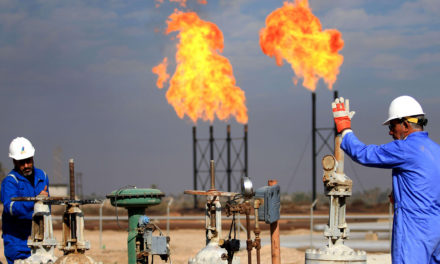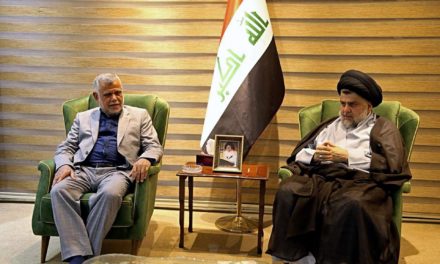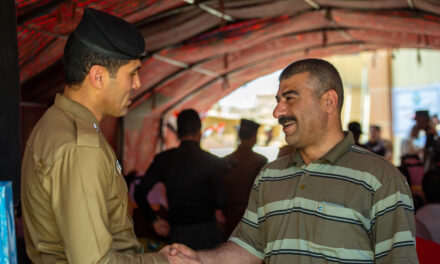This is the final article in a four-part series on the upcoming Iraqi election by Ambassador Lukman Faily
To carry out any real reform between Baghdad and Erbil, there needs to be a clear definition of the powers and limitation of the central government’s mandate. Here, Baghdad must have uncontested sovereignty over finance, defense, borders, foreign policy and natural resources, and all must recognize and respect the powers of the central authority according to the constitutional provisions voted for by all in the 2005 constitutional referendum. At the same time, the government in Baghdad must be truly representative of the aspirations and expectations of society in all its facets. Having said that, regions and governorates must also be respected. Import distribution of wealth should be ensured, with local governments and governorates granted a mandate to administer services, infrastructure and local security.
To reform the Iraqi political scene, the leadership of the Kurdish Regional Government in Erbil must agree with the fact that its assumptions regarding the Kurdish referendum did not have the desired results, and no other option other than to reach long-term consensuses with the central government. If this change occurs in the search for solid foundations for mutual utilitarianism, it will be a fundamental transformation of a serious debate on the required constitutional reforms. KRG for the first time since 2003 will be able to focus on the issues that bind it to Iraq, instead of searching for reasons to separate.
Baghdad will also need to chart a reasonable course to correct the political process if national unity and territorial integrity are its main objectives, especially since Kurdistan region is an integral part of Iraq. As there is no room or interest to show the citizens of this region that they are citizens of second class and that they have to pay heavily for the mistakes of their leaders. The Iraqi government now has an opportunity to achieve something that has not been done by any other government since the establishment of the Iraqi state, that is to lay the foundations for permanent stability and coexistence based on good governance and real representation. This is in full accord with the message of the religious authority in Najaf calling for national unity and reform.
Others may ask about the nature of the various models of the country’s administration and the political contract that can be applied. The key to determining this nature will be related to the agreement to see the structure of the state, then to negotiate the details after it, instead of past practices where there are inconsistencies in the Iraqi Constitution that have not yet been addressed are abused when possible. Thus, finding and establishing wrong practices in the administration of the country is vital.
The failure of the KRG referendum project needs us, as Iraqis in general to pause for real reflection of the reasons for reaching such a situation. More so, a serious Kurdish reflection should take place to understand the causes of the failure of the project. The reasons for the failure may be multiple, some related to the structure of the internal Kurdish political process; some of them related to the poor understanding of the geopolitical reality of the Middle East and the world; and some of them relate to the weakness of the strength of the relationship between Baghdad and Erbil. It is important for us as Iraqis to learn from this harsh lesson and realize that our interest comes in our cooperation and our continuous dialogue to reach a political and societal equation that is healthy and beneficial for all parties, instead of our constant preoccupation with extinguishing natural and artificial fires that we create.
Here we can say that the political charter, for the post-2003 Iraq, has not been properly applied or solved with the numerous problems we face, concerning the different powers between the federal authorities and the administration of the Kurdish region and the provinces. For the first time since 2003, there is a real opportunity to address this issue seriously and to enshrine a new framework in a modified constitution, since the imbalance in the political process cannot be addressed without changing the constitution.
The strength or weakness of the participation of the various Kurdish parties in the upcoming parliamentary election, and later in the new government formation will be a strong and vital indication of the willingness of the Kurdish political forces (and therefore the KRG) to participate in reforming the situation and restoring stability to Iraq after the victory over Da’ish. This full liberation would not have been possible if the Peshmerga forces had not participated in force and self-sacrifice alongside the tribes, the Iraqi army, and the rest of the brave Iraqi forces.

Lukman Faily
Lukman Faily served as Iraqi ambassador to Japan and the United States.










